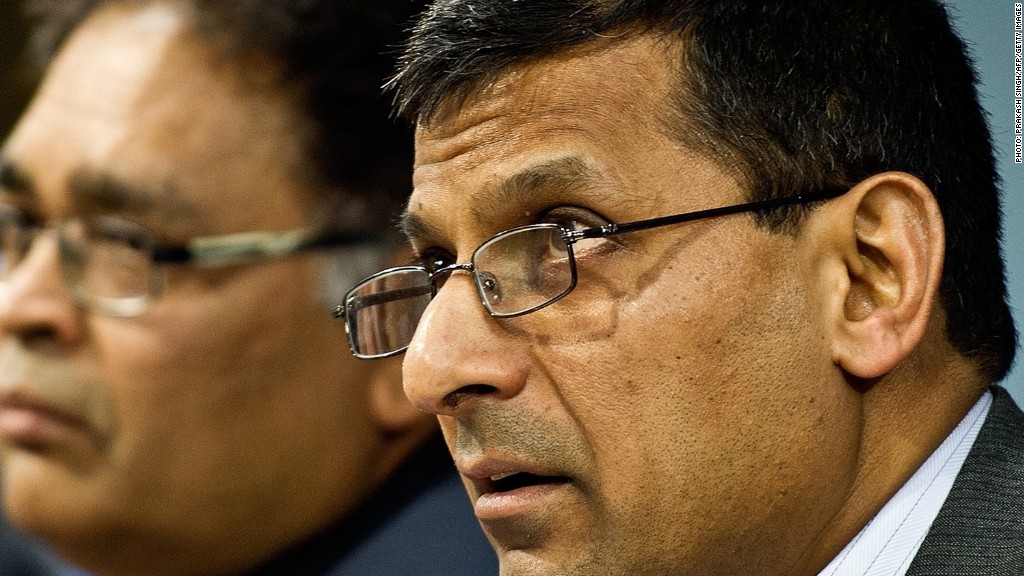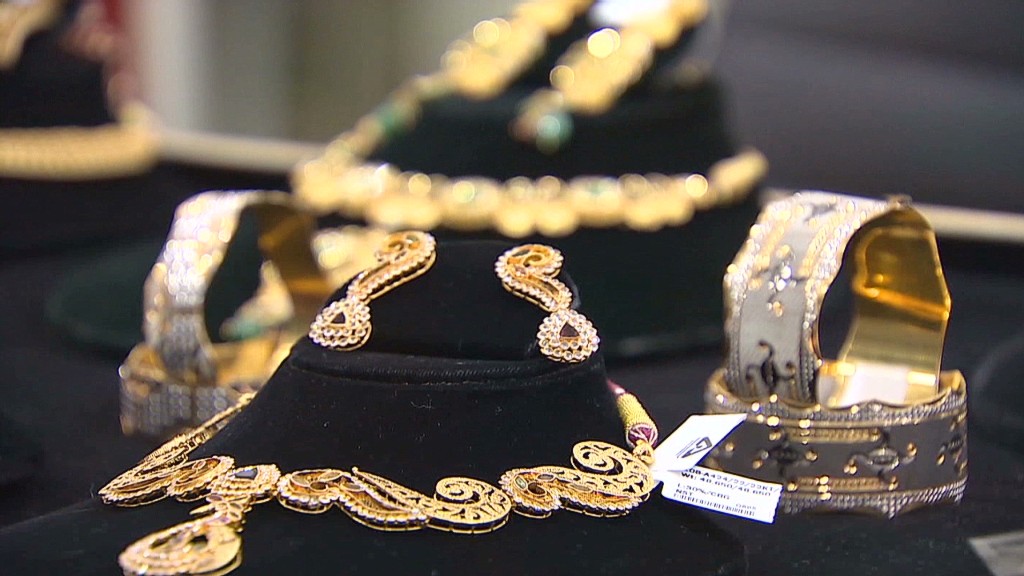
India is facing sky-high inflation, a rapidly weakening rupee, increased borrowing costs, a faltering stock market and its slowest economic growth in a decade.
Into this mess steps Raghuram Rajan, a University of Chicago professor and fledgling media star who this week assumed the top spot at the Reserve Bank of India.
Rajan is best known for predicting an impending financial crisis during a 2005 gathering of prominent economists in Jackson Hole. The event was meant to honor former Fed chairman Alan Greenspan, who listened as Rajan argued that the exotic financial instruments championed by Greenspan had made economies unsafe.
Rajan, who delivered his first address as India's central banker on Wednesday, will need similar courage and foresight in his new job. Many of India's problems are outside the purview of the central bank, and the country's fractured political class is unlikely to legislate any meaningful reforms with an election looming next year.
The result could be an attempt by Rajan to forge a new, more unconventional path for the central bank.
"Any entrant to the central bank governorship probably starts at the height of their popularity," Rajan said Wednesday. "Some of the actions I take will not be popular. The governorship of the central bank is not meant to win one votes or Facebook likes."
Rajan is not wasting any time. In his first day on the job, Rajan announced reforms that should make it much easier for new banks to be licensed. He also took steps to support the rupee, including a new central bank facility to encourage commercial banks to accept more deposits from overseas.
Related story: Nissan resurrects Datsun in India
Investors appear impressed, for now. Mumbai's Sensex index gained 2% and the rupee clawed back some lost ground.
But Rajan's next choices could be more fraught. The central bank could hike interest rates to fight inflation, but too sharp a move would raise borrowing costs for businesses and risk angering the ruling political party.
"The government is extremely unlikely to countenance a significant rise in the benchmark interest rate as a means of supporting the rupee, given the negative implications that would have for the real economy and for the electoral prospects of the ruling coalition," said Anjalika Bardalai, a senior analyst at Eurasia Group.

Unlike some other central banks, the Reserve Bank of India is not legally independent, and therefore more subject to shifting political whims.
"Although Rajan's appointment may improve coordination between the government and the central bank, it is unlikely to eliminate this tension in one stroke," Bardalai said.
Related story: India's economic growth slowest since 2009
Rajan, a former chief economist at the International Monetary Fund, must also keep an eye on the Federal Reserve, which is likely to pull back on its bond-buying program later this year. Emerging markets, which tended to have bonds offering higher yields, are no longer as attractive to investors hungry for income.
India is particularly vulnerable due to its $88 billion current account deficit, which reflects the nation's tendency to import many more goods than it exports and leaves it heavily reliant on foreign capital.
Prime Minister Manmohan Singh is expected to make India's case for a measured withdrawal of U.S. monetary stimulus at the G-20 meeting starting in Russia later on Thursday.
"I will emphasize ... the need for an orderly exit from the unconventional monetary policies being pursued by the developed world for the last few years, so as to avoid damaging the growth prospects of the developing world," Singh said earlier this week.
